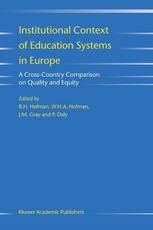

Most ebook files are in PDF format, so you can easily read them using various software such as Foxit Reader or directly on the Google Chrome browser.
Some ebook files are released by publishers in other formats such as .awz, .mobi, .epub, .fb2, etc. You may need to install specific software to read these formats on mobile/PC, such as Calibre.
Please read the tutorial at this link: https://ebookbell.com/faq
We offer FREE conversion to the popular formats you request; however, this may take some time. Therefore, right after payment, please email us, and we will try to provide the service as quickly as possible.
For some exceptional file formats or broken links (if any), please refrain from opening any disputes. Instead, email us first, and we will try to assist within a maximum of 6 hours.
EbookBell Team

0.0
0 reviewsBased on empirical analysis using configuration theory and multi-dimensional scaling, this book provides insight into types of relationships that can be found between groups of countries with certain institutional context features, and into the quality and equity of their education system.
In this volume, the authors take up the challenge of considering what a European ‘settlement’ might look like. In doing so, they take into account worldwide trends and the increasing evidence of convergence across educational systems. The outcomes of comparative analyses seem to suggest that strong education systems in terms of finance, governance and choice could be preferable. To a greater or lesser extent, therefore, all the systems of education currently in use in Europe face some common challenges. The way in which these challenges are addressed will determine the future of these systems. Key elements in the current debate that are considered in greater detail in this volume include changing views on (a) centre-local relations with signs of an increasing commitment to decentralisation as a guiding principle for developing school governance; (b) school autonomy which is now increasingly regarded as the engine-room for school improvement, especially in relation to sustaining it; and (c) the celebration of community and school choice as a means of securing higher levels of parental involvement.
This volume will be of interest to researchers and practitioners working in education, educational research and sociology of education. It will also be of relevance to those interested in the comparison of various education systems and in governance, funding of education and school choice.